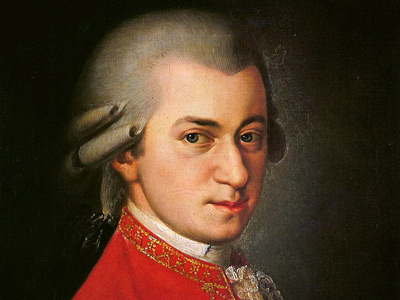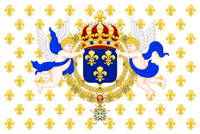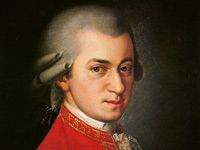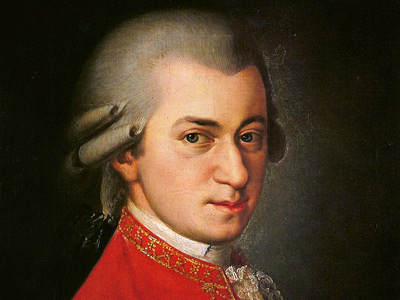Wolfgang Amadeus Mozart (1756-1791)

1777–78: Journey to Paris
In August 1777, Mozart resigned his position at Salzburg and on 23 September ventured out once more in search of employment, with visits to Augsburg, Mannheim, Paris, and Munich.
Mozart became acquainted with members of the famous orchestra in Mannheim, the best in Europe at the time. He also fell in love with Aloysia Weber, one of four daughters of a musical family. There were prospects of employment in Mannheim, but they came to nothing, and Mozart left for Paris France The Kingdom of France is the historiographical name or umbrella term given to various political entities of France in the medieval and early modern period. It was one of the most powerful states in Europe since the High Middle Ages. It was also an early colonial power, with possessions around the world. Colonial conflicts with Great Britain led to the loss of much of its North American holdings by 1763. The Kingdom of France adopted a written constitution in 1791, but the Kingdom was abolished a year later and replaced with the First French Republic. on 14 March 1778 to continue his search. One of his letters from Paris hints at a possible post as an organist at Versailles, but Mozart was not interested in such an appointment. He fell into debt and took to pawning valuables. The nadir of the visit occurred when Mozart's mother was taken ill and died on 3 July 1778. There had been delays in calling a doctor—probably, according to Halliwell, because of a lack of funds. Mozart stayed with Melchior Grimm, who, as personal secretary of the Duke d'Orléans, lived in his mansion.
The Kingdom of France is the historiographical name or umbrella term given to various political entities of France in the medieval and early modern period. It was one of the most powerful states in Europe since the High Middle Ages. It was also an early colonial power, with possessions around the world. Colonial conflicts with Great Britain led to the loss of much of its North American holdings by 1763. The Kingdom of France adopted a written constitution in 1791, but the Kingdom was abolished a year later and replaced with the First French Republic. on 14 March 1778 to continue his search. One of his letters from Paris hints at a possible post as an organist at Versailles, but Mozart was not interested in such an appointment. He fell into debt and took to pawning valuables. The nadir of the visit occurred when Mozart's mother was taken ill and died on 3 July 1778. There had been delays in calling a doctor—probably, according to Halliwell, because of a lack of funds. Mozart stayed with Melchior Grimm, who, as personal secretary of the Duke d'Orléans, lived in his mansion.
While Mozart was in Paris, his father was pursuing opportunities of employment for him in Salzburg. With the support of the local nobility, Mozart was offered a post as court organist and concertmaster. The annual salary was 450 florins, but he was reluctant to accept. By that time, relations between Grimm and Mozart had cooled, and Mozart moved out. After leaving Paris in September 1778 for Strasbourg, he lingered in Mannheim and Munich, still hoping to obtain an appointment outside Salzburg. In Munich, he again encountered Aloysia, now a very successful singer, but she was no longer interested in him. Mozart finally returned to Salzburg on 15 January 1779 and took up his new appointment, but his discontentment with Salzburg remained undiminished.
Among the better known works which Mozart wrote on the Paris journey are the A minor piano sonata, K. 310/300d and the "Paris" Symphony (No. 31), which were performed in Paris on 12 and 18 June 1778.
HISTORY

RESOURCES
This article uses material from the Wikipedia article "Wolfgang Amadeus Mozart", which is released under the Creative Commons Attribution-Share-Alike License 3.0.
© Stories Preschool. All Rights Reserved.









